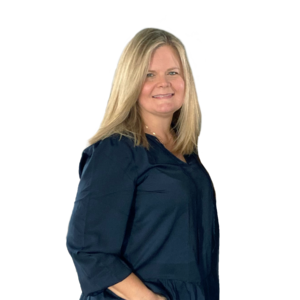Strategies for Improved Senior Care Recordkeeping

Robbie Felton, CEO, Intus Care
Recordkeeping is an essential daily task for any senior care organization, but it can also be time-consuming. Done well, recordkeeping can provide organizations with key insights that can help them to improve performance and better serve residents.
The Importance of Good, Accurate Recordkeeping
According to Robbie Felton, CEO of Intus Care, good recordkeeping is important because the records an organization keeps on its members, patients, and residents, translates to the picture that the organization has of those people. Incomplete records that lack information on a resident’s clinical conditions, social profile, history, and more, mean that an organization won’t have with the evidence or data they need for well-informed decision-making for that resident.
Evan Jackson, COO of Intus Care, explains that recordkeeping helps an organization to create a full and holistic profile of its residents. “Recordkeeping plays an essential role in keeping seniors happy, healthy, and living in an optimal care setting.”
Challenges in Recordkeeping
Senior care organizations face plenty of challenges in maintaining accurate records. According to Felton, most existing data sources are difficult to use. “Many of these sources are legacy sources, and in terms of the infrastructure they’re built on, they’re very much aged and they don’t represent the technology we use today.”
This technology isn’t nearly as easy to use as a smartphone, Facebook, or Google, which are built on a much more user-centric format. “It ends up working out that providers or care workers get on these data platforms and they don’t match their workflow, they’re not usable, and they hinder their day-to-day workflows and jobs.”
Steps to Improve Senior Care Recordkeeping

Evan Jackson, COO, Intus Care
Organizations can take several steps to include their recordkeeping. Jackson suggests that organizations start by synthesizing their data and pulling it all into one location. “Programs working with multiple data sources that don’t talk to each other make it hard to identify where that information is being stored,” he explains. “Create that one single location where you can view and see the data that they’re inputting.”
Felton adds that it’s important to create well-defined processes that are used to help input and export data. These processes standardize the way that you input data across your entire organization.
Throughout the process, Intus Care often finds that certain data points need to be improved, particularly when it comes to the more specified coding of conditions. “What level of disease does a patient have, are we recording their current care provider information – that information makes sure that [you’re] getting a real picture,” says Jackson.
Jackson notes that recordkeeping can give an organization an understanding of their residents from a full perspective. “Understanding all of the data points contributing to who they are from a health perspective is really important in providing them with quality care and helping to prevent hospitalizations,” he says. By taking the time to improve data collection practices, an organization can better support its residents and give them the quality care they need.

Paige Cerulli is a contributing writer to i Advance Senior Care.
Related Articles
Topics: Clinical , Facility management , Featured Articles , Information Technology , Operations , Resident Care , Technology & IT











